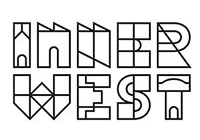Inner West Council
Residents place of work by industry - All industries
Journey to Work (residents) data shows where the Inner West Council's resident workers go to work and whether they need to travel significant distances to work. This impacts upon planning and advocacy for roads and public transport provision, as well as economic development strategies to develop local employment which fits the skills and qualifications of the resident workers.
The distance travelled by residents in different industry sectors may be influenced by; the nature of employment opportunities versus the skills and qualifications of local residents; transport options available and commuting times; relationship between wages and salaries (people will travel further for higher paid jobs), house prices in the local area; and the geographic size of the local area (in large areas, local jobs may not in fact be so local, while in more compact areas, resident workers may walk to work in a neighbouring LGA.).
Please note that where an industry has a very small number of employed residents, there may be no information displayed on the map or the detailed table due to insufficient residents travelling to any one area to display. The summary table will still include the information for the total residents working locally or travelling outside the area to work.
Residents place of work data should be viewed alongside Self-containment and Jobs to workers ratio datasets, as well as modelled Employed residents estimates, which are updated annually. The Resident workers section will provide the characteristics of resident workers.
Data source
Australian Bureau of Statistics (ABS) – Census 2021 – by place to work
Select industry:
| Employment location of resident workers by industry | |||||||||
|---|---|---|---|---|---|---|---|---|---|
| Inner West Council - All industries | 2021 | ||||||||
| Location | Number | % | |||||||
| Live and work in the area | 22,695 | 22.2 | |||||||
| Live in the area, but work outside | 76,404 | 74.8 | |||||||
| No fixed place of work | 3,026 | 3.0 | |||||||
| Total employed residents in the area | 102,125 | 100.0 | |||||||
Source: Australian Bureau of Statistics, Census of Population and Housing 2021. Compiled and presented in economy.id by .id (informed decisions) Excludes residential locations with fewer than 10 people. | |||||||||

| Employment location of resident workers by LGA by industry | |||||||||
|---|---|---|---|---|---|---|---|---|---|
| Inner West Council - All industries | 2021 | ||||||||
| Location | Number | % | |||||||
| Sydney | 42,013 | 41.1 | |||||||
| Inner West | 22,695 | 22.2 | |||||||
| Parramatta | 3,953 | 3.9 | |||||||
| North Sydney | 3,656 | 3.6 | |||||||
| No usual address (NSW) | 2,981 | 2.9 | |||||||
| Bayside (NSW) | 2,561 | 2.5 | |||||||
| Ryde | 2,439 | 2.4 | |||||||
| Canterbury-Bankstown | 2,289 | 2.2 | |||||||
| Willoughby | 2,206 | 2.2 | |||||||
| Randwick | 2,066 | 2.0 | |||||||
| Canada Bay | 1,872 | 1.8 | |||||||
| Burwood | 1,139 | 1.1 | |||||||
| Cumberland | 1,049 | 1.0 | |||||||
| Woollahra | 951 | 0.9 | |||||||
| Georges River | 919 | 0.9 | |||||||
| Waverley | 841 | 0.8 | |||||||
| Northern Beaches | 820 | 0.8 | |||||||
| Liverpool | 735 | 0.7 | |||||||
| Strathfield | 732 | 0.7 | |||||||
| Blacktown | 723 | 0.7 | |||||||
| Sutherland Shire | 585 | 0.6 | |||||||
| Lane Cove | 544 | 0.5 | |||||||
| The Hills Shire | 484 | 0.5 | |||||||
| Fairfield | 478 | 0.5 | |||||||
| Ku-ring-gai | 403 | 0.4 | |||||||
| Penrith | 325 | 0.3 | |||||||
| Hornsby | 299 | 0.3 | |||||||
| Campbelltown (NSW) | 255 | 0.2 | |||||||
| Mosman | 222 | 0.2 | |||||||
| Hunters Hill | 216 | 0.2 | |||||||
| Melbourne | 157 | 0.2 | |||||||
| Wollongong | 105 | 0.1 | |||||||
| Unincorporated ACT | 104 | 0.1 | |||||||
| Camden | 91 | 0.1 | |||||||
| Brisbane | 88 | 0.1 | |||||||
| Central Coast (NSW) | 85 | 0.1 | |||||||
| Hawkesbury | 79 | 0.1 | |||||||
| Newcastle | 55 | 0.1 | |||||||
| Blue Mountains | 54 | 0.1 | |||||||
| Port Phillip | 49 | 0.0 | |||||||
| Yarra | 40 | 0.0 | |||||||
| Wingecarribee | 38 | 0.0 | |||||||
| Gold Coast | 34 | 0.0 | |||||||
| Wollondilly | 22 | 0.0 | |||||||
| Mid-Coast | 22 | 0.0 | |||||||
| Shoalhaven | 21 | 0.0 | |||||||
| No usual address (Qld) | 20 | 0.0 | |||||||
| Adelaide | 18 | 0.0 | |||||||
| Wagga Wagga | 18 | 0.0 | |||||||
| Perth | 17 | 0.0 | |||||||
| Stonnington | 17 | 0.0 | |||||||
| Snowy Monaro Regional | 16 | 0.0 | |||||||
| Orange | 16 | 0.0 | |||||||
| Shellharbour | 15 | 0.0 | |||||||
| Lake Macquarie | 14 | 0.0 | |||||||
| Bathurst Regional | 13 | 0.0 | |||||||
| Monash | 13 | 0.0 | |||||||
| Boroondara | 12 | 0.0 | |||||||
| Port Stephens | 12 | 0.0 | |||||||
| Kiama | 11 | 0.0 | |||||||
| Byron | 11 | 0.0 | |||||||
| Greater Geelong | 11 | 0.0 | |||||||
| Kingston (Vic.) | 10 | 0.0 | |||||||
| Knox | 10 | 0.0 | |||||||
| No usual address (WA) | 10 | 0.0 | |||||||
| Eurobodalla | 10 | 0.0 | |||||||
| Lithgow | 10 | 0.0 | |||||||
| Maitland | 10 | 0.0 | |||||||
Source: Australian Bureau of Statistics, Census of Population and Housing 2021. Compiled and presented in economy.id by .id (informed decisions) Excludes residential locations with fewer than 10 people. | |||||||||
